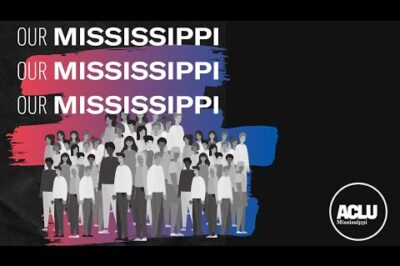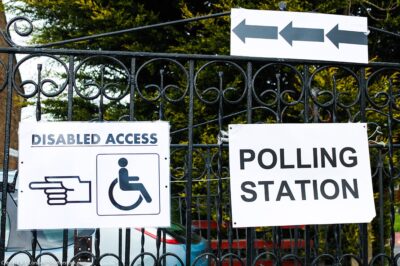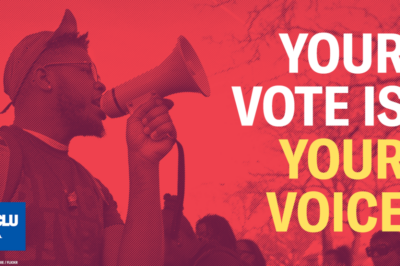Court Rules That Libertarian Party Nominees Must Be Placed On Massachusetts Ballot
Massachusetts Elections Division Procedure For Substitution Of Actual Nominees For President And Vice President Faulted
FOR IMMEDIATE RELEASE
CONTACT: info@aclum.org
BOSTON – A federal judge has ordered the Secretary of the Commonwealth to list Bob Barr and Wayne A. Root as the Libertarian Party candidates for President and Vice-President on the November ballot. As a result of a suit brought by the American Civil Liberties Union of Massachusetts, Barr and Root, who were selected at the party’s nominating convention, will be substituted for George Phillies and Chris Bennett, two unsuccessful candidates whose names appeared on the party’s state nominating petitions.
The Libertarian Party does not currently qualify as a “political party” under Massachusetts law because it did not have a candidate who received three percent of the vote in the last statewide election. As a result, a candidate seeking to run as a Libertarian must collect valid signatures from at least 10,000 voters to secure a place on the ballot.
When the party began to collect signatures earlier this year, Phillies and Bennett were listed as the party’s candidates. In late May, however, the party nominated Barr and Root. At that point the party had collected over 7,000 signatures, but when party officials sought to have Barr and Root listed as the candidates, they were informed that the Secretary would not allow substitution and that they would have to start from scratch — even though state law and prior practice allowed for substitution and the Secretary’s Election Division had indicated that substitution would not be a problem.
The ACLU of Massachusetts, a nonpartisan civil liberties organization, filed suit last month on behalf of the candidates and the party, asserting that the procedures followed by the office of the Secretary were so vague as to violate their right to due process of law and that the selective allowance of substitution deprived them of equal protection of the law.
In an order entered late yesterday, Judge Nathaniel Gorton held that absence of any clear guidance in state law governing the process of substitution effectively required minor political parties, such as the Libertarian Party, to guess at their peril how to comply with the law. Finding that this placed a substantial burden on the party’s access to the ballot which could not be justified by any discernible interest on the part of the state, and recognizing the harm that would result from deprivation of such access, the court granted the preliminary injunction sought by the plaintiffs.
“The central issue in this case is the restriction of ballot access for third parties, which has been and continues to be a problem in Massachusetts,” said John Reinstein, Legal Director for the ACLU of Massachusetts.
“The right of political parties or candidates to a place on the ballot bears directly on the right of citizens to vote. If parties or candidates are kept off the ballot, their adherents are compelled to vote for representatives other than those of their choice,” said Reinstein. “The denial of a place on the ballot thus constitutes a deprivation of the franchise.”
In July 2007, Dr. George Phillies, the leading Massachusetts candidate of the Libertarian Party, wrote to the Massachusetts Elections Division to explain that he foresaw a potential problem: required signature gathering for placement on the Massachusetts ballot needed to begin before the national Libertarian Party’s nominating convention on May 25, 2008. Phillies asked about the possibility of substituting the name of the final Libertarian Party candidate on the ballot if the nominee selected at the party’s convention differed from the one submitted at the time of the signature-gathering deadline.
The Massachusetts Election Division responded:
“If the Libertarian Party seeks to substitute a candidate for President who they already got signatures for on nominating papers, our Office can prepare a form that allows members of the party to request the substitution of the candidate.”
At the national Libertarian Party’s nominating convention on May 25, 2008, the party selected former U.S. Congressman Bob Barr as its nominee for president, and Wayne A. Root as its vice presidential nominee. Dr. Phillies, who finished fifth, re-contacted the Massachusetts Elections Division to inform them of the need for substitution. On June 5, 2008, the Division denied this request, stating that the party would need to repeat the process of signature gathering to place new names on the ballot.
“Requiring smaller political parties to re-gather signatures for their final nominees is a significant and burdensome expense and thus serves as a barrier to their full participation in the electoral process,” said Carol Rose, Executive Director of the ACLU of Massachusetts. “The Commonwealth should do everything it can to encourage greater electoral participation, not blocking access to the ballot or allowing voters to be misled or confused about who they are actually voting for.”
The plaintiffs in the suit were represented by ACLU of Massachusetts cooperating attorneys Matthew Baltay, Amrish Wadhera and Jennifer Behr at the firm of Foley Hoag LLP, and by John Reinstein, Legal Director of the ACLU of Massachusetts.
For more information: www.aclum.org
www.aclum.org/legal/barr_v_galvin/pi_order.pdf
www.aclum.org/legal/barr_v_galvin/barr_memorandum_and_order_granting_pi.pdf
Stay Informed
Every month, you'll receive regular roundups of the most important civil rights and civil liberties developments. Remember: a well-informed citizenry is the best defense against tyranny.




